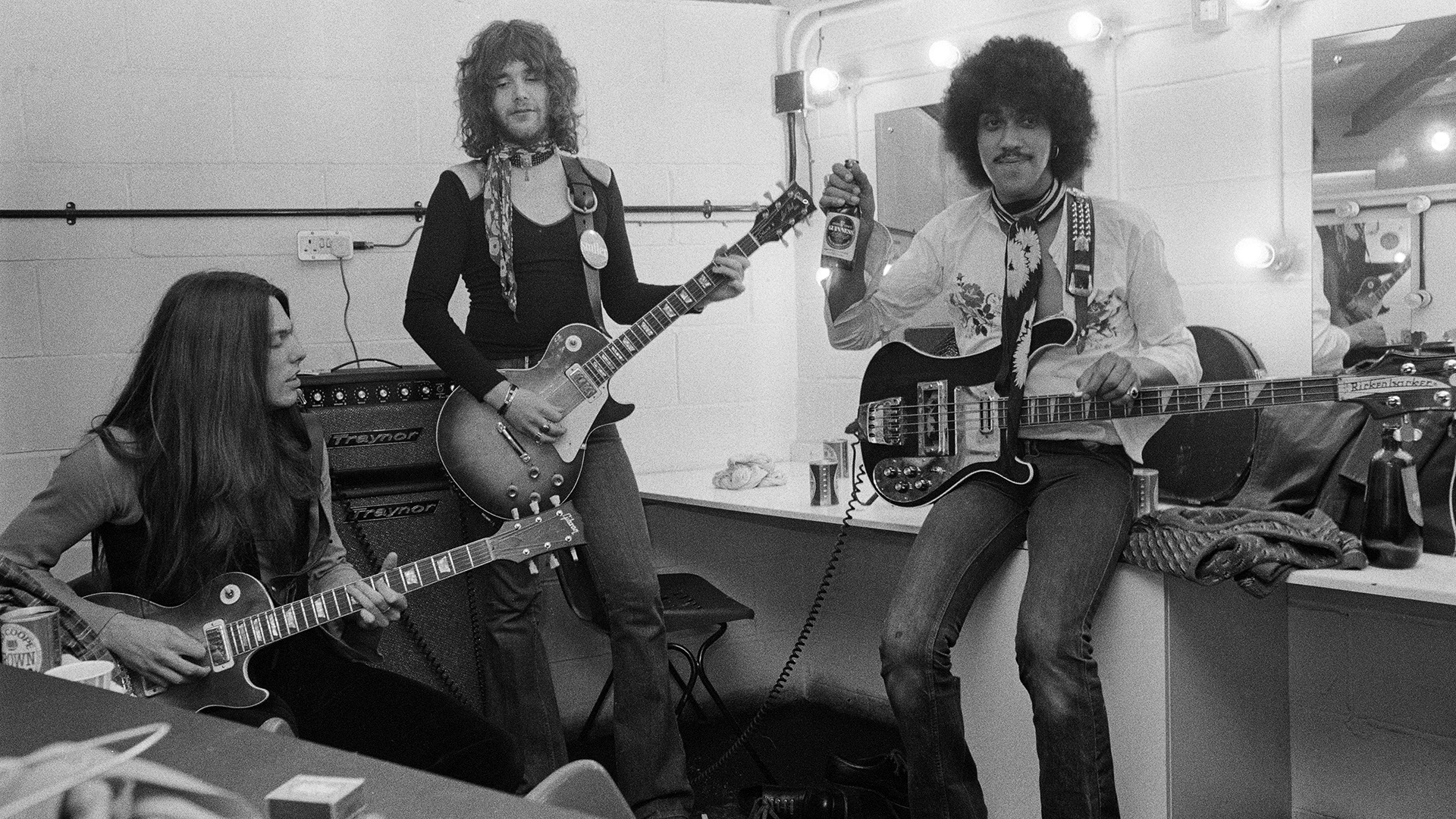"It came down to saying, ‘Man, you’re playing better than I am. You gotta take the part.’ You gotta be honest with each other, or it’s just going to be crap.” Scott Gorham recalls finding his footing with Thin Lizzy’s 1976 classic “Emerald”
The guitarist explains how he adapted to the band’s Irish roots in a new Guitar Player interview

“At the time, I didn’t worry about ‘Emerald’ standing the test of time,” Scott Gorham tells Guitar Player in a new interview. "It was just about getting it done. But it’s a great, well-written song, and there’s a lot of powerful stuff going on with those Irish-inspired lines.."
For an American in Ireland, Scott Gorham had a lot to assimilate when he joined Irish rockers Thin Lizzy in 1974. In addition to forming a sharply honed tandem with fellow newcomer Brian Robertson, he had to blend traditional Irish musical motifs and stylings —a hallmark of the group from its earliest days — with his own blues-rock approach.
Doing so took a while, by his own account, but he had it nailed by the time Thin Lizzy recorded Jailbreak, their international breakthrough, in 1976. And perhaps no track on that album demonstrates what he accomplished better than “Emerald,” the album’s final track. The song’s lyrics describe the 12th century Anglo-Norman invasion of Ireland, set to a 6/8 rhythm, with electric guitar lines inspired by traditional Irish music.
Composed by Gorham, Robertson and drummer Brian Downey, “Emerald” came together in rehearsals for Jailbreak. “The parts were basically there, which came from different guys in the band," Gorham explains. "So it was just a matter of gluing them together and getting them in the right sequence."
"As far as the guitars go, Robbo and I sorted out a lot of that in rehearsal. A lot of times it came down to saying, ‘Man, you’re playing better than I am. You gotta take the part.’ You gotta be honest with each other, or it’s just going to be crap. If we let ego get in the way, we woulda been done. So we got maybe 80 percent of the parts divided up between us just by doing that.
“And ultimately, ‘Emerald’ was great fun because it’s just power riffs, which are a joy to play, especially with a Les Paul Standard. I had always been waiting for the day when I could get enough money for it. I felt like I was suffering with the Deluxe,” he adds with a laugh, referring to his previous model of guitar. "By the time we had done Nightlife, in 1974, I was able to get my hands on all the things I wanted and got things dialed in."

Likewise, Gorham says the Irish music–inspired dual harmonies he and Brian Robertson conjured began to coalesce by the time of Jailbreak.
All the latest guitar news, interviews, lessons, reviews, deals and more, direct to your inbox!
“The Irish melodies were something I had to learn when I joined Thin Lizzy,” he says. “I never knew there was such a thing as Irish rock. But I found out that, when I turned the volume up, the Irish lines became power lines. There was a lot of emotion in the Irish way of doing things, and I learned to love it.
“And obviously, I’m proud of ‘Emerald.’ We always loved playing it live and seeing all the smiling faces in the crowd.”
Gorham has been in the news as of late, discussing how he and Brian Robertson developed their six-string harmony lines and revealing how their label was poised to drop them if Jailbreak wasn’t a success. He also spoke about the chance way in which his favorite Thin Lizzy song, “She Knows,” developed and became his first songwriting credit with the band.
Andrew Daly is an iced-coffee-addicted, oddball Telecaster-playing, alfredo pasta-loving journalist from Long Island, NY, who, in addition to being a contributing writer for Guitar World, scribes for Rock Candy, Bass Player, Total Guitar, and Classic Rock History. Andrew has interviewed favorites like Ace Frehley, Johnny Marr, Vito Bratta, Bruce Kulick, Joe Perry, Brad Whitford, Rich Robinson, and Paul Stanley, while his all-time favorite (rhythm player), Keith Richards, continues to elude him.

